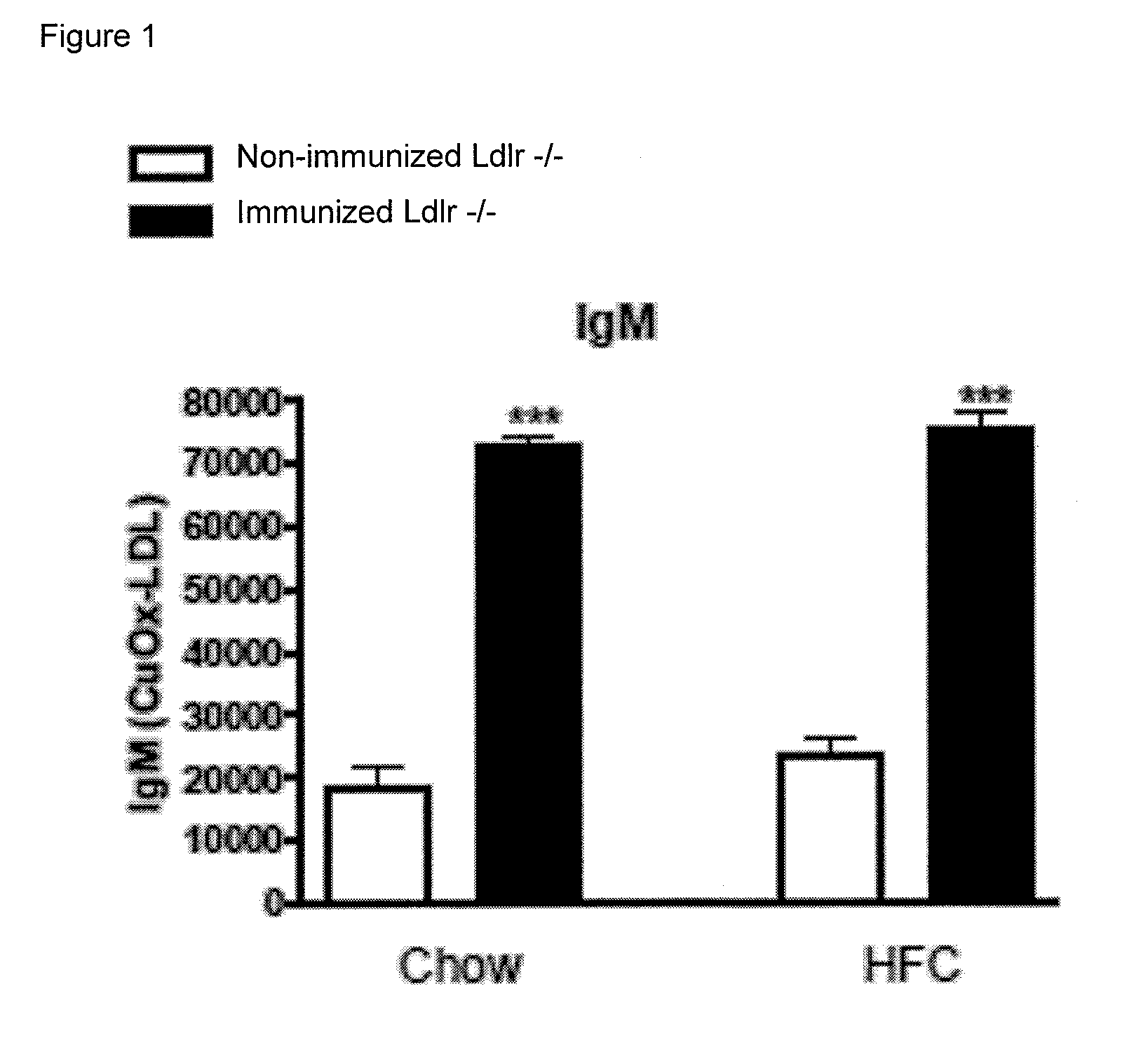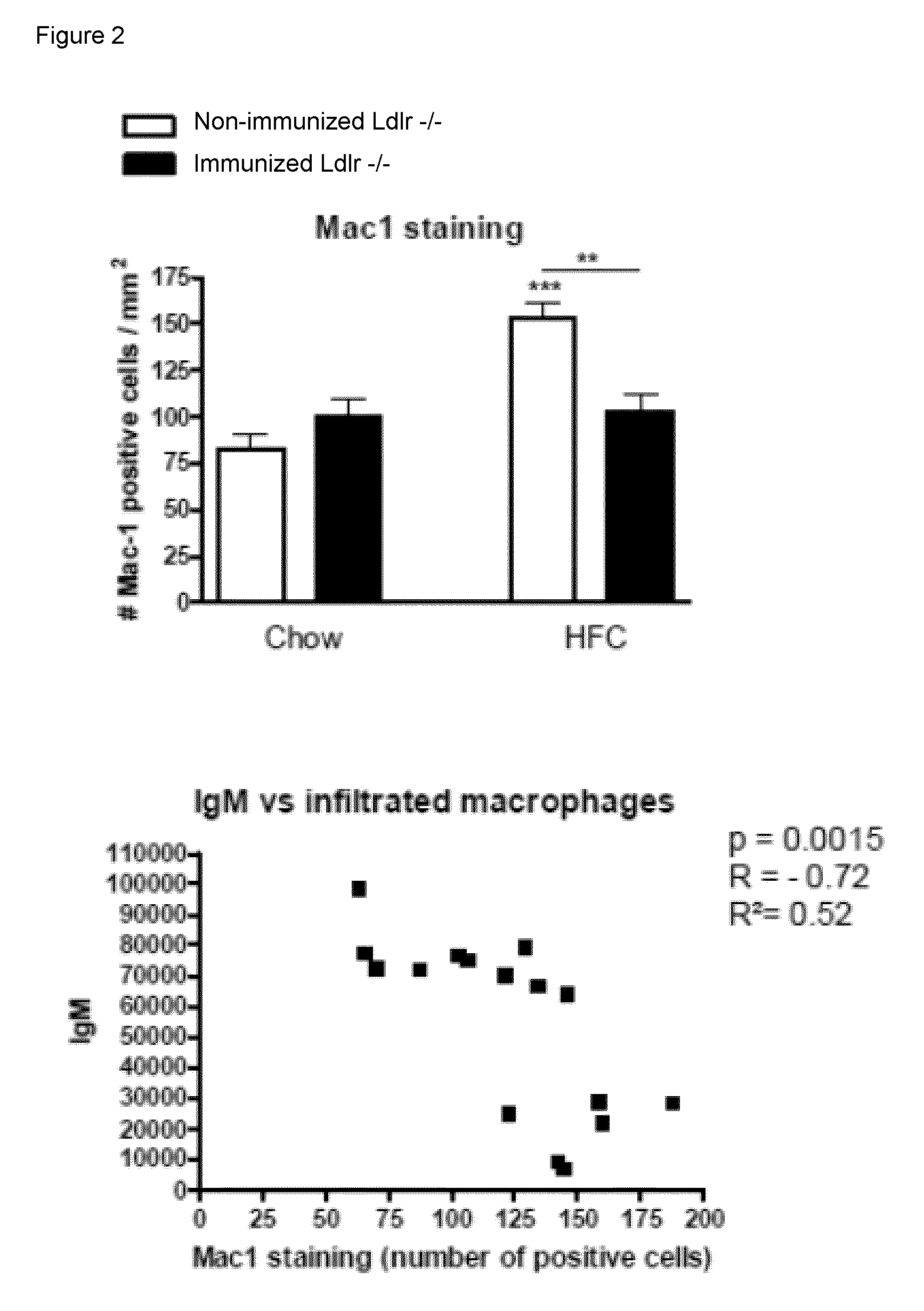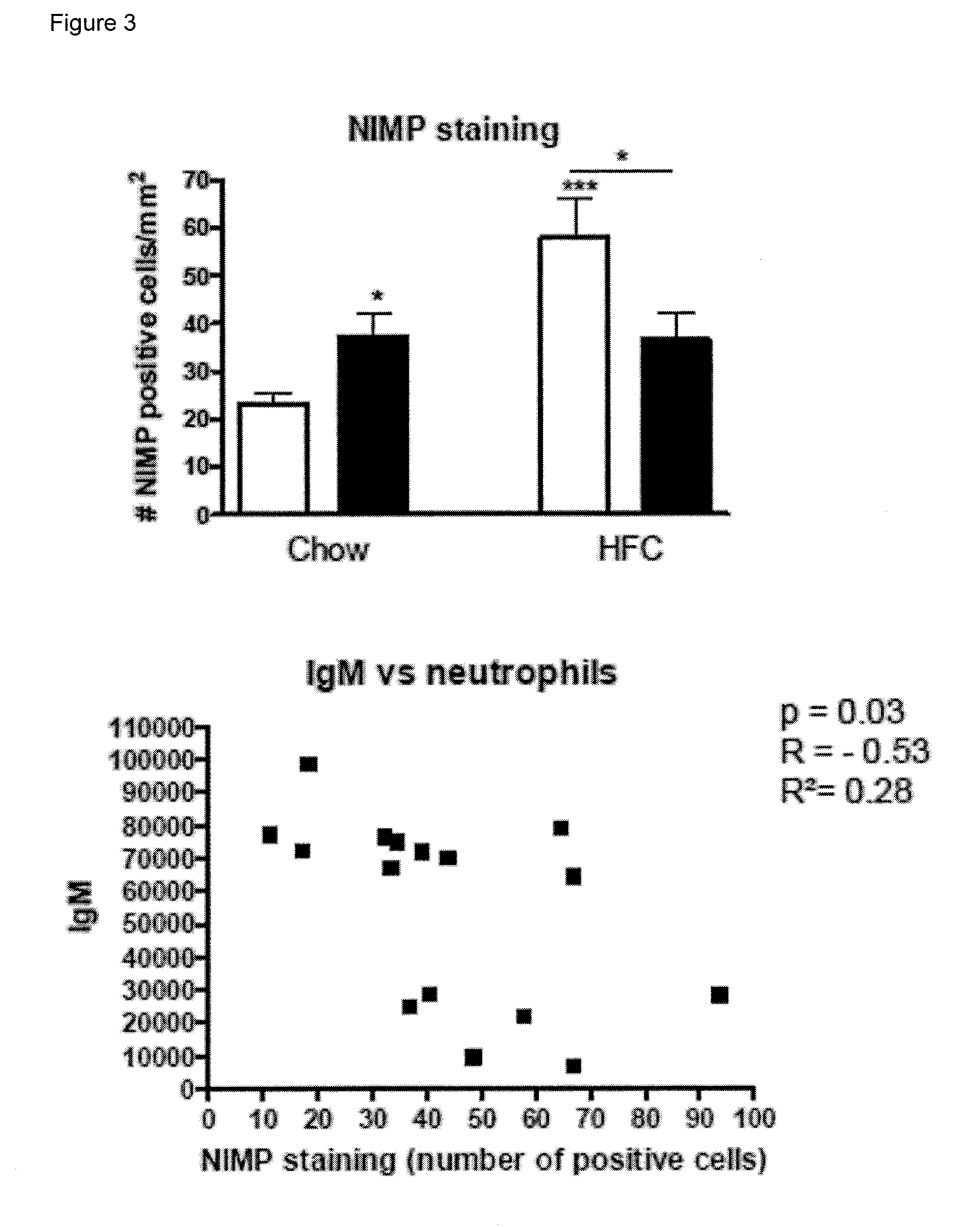Methods for treating liver inflammation in a subject suffering from non-alcoholic steatohepatitis
a non-alcoholic steatohepatitis and subject technology, applied in the field of liver disease prevention and medical treatment, can solve the problems of increasing the prevalence of both nafld and nash, affecting the treatment effect of no established treatment for patients suffering from nash, so as to achieve the effect of increasing the level of anti-oxldl antibodies
- Summary
- Abstract
- Description
- Claims
- Application Information
AI Technical Summary
Benefits of technology
Problems solved by technology
Method used
Image
Examples
example 1
Experimental Procedures
Preparation of Immunogen
[0056]For immunization, the heat-inactivated R36A strain of Streptococcus pneumoniae (Birmingham, Ala.) was used, still bearing the PC headgroup epitope similar to oxLDL. Colonies of the R36A strain were harvested at mid log phase after incubation at 37° C. on blood agar plates and transferred to Todd-Hewitt plus 0.5% yeast broth. The mid log phase is characterized by an OD value of 0.425 to 0.45 at 600 nm. S. pneumoniae was heat-inactivated at 60° C. for 30 min, after which no colonies of this suspension were detected on blood agar plates. For freezer stocks, small aliquots of S. pneumoniae at mid log density were harvested and suspended in Todd-Hewitt plus 80% sterile glycerol and stored at −80° C. (67).
Subjects
[0057]Sixty-six severely obese patients undergoing bariatric surgery at the Maastricht University Medical Centre were included in the study. None of the subjects suffered from autoimmune diseases, viral hepatitis, or reported e...
example 2
Increased IgM Antibody Titers Against Modified LDL after Immunization with Heat-Inactivated Pneumococci
[0066]To determine whether IgM autoantibodies to oxLDL have a protective effect on liver inflammation, mice were immunized for 9 weeks with heat-inactivated pneumococci, known to induce high anti-oxLDL IgM titers dominated by T15-idiotypic IgM. To induce NASH, the mice received a HFC diet during the last 3 weeks. Total body weight and the ratio of liver weight to total body weight were not significantly different between the different groups (FIG. 18). Immunization of Ldlr− / − mice with heat-inactivated pneumococci resulted in a strong increase in IgM titers to oxLDL (FIG. 11A+B). Only weak, although significant IgG responses were observed. We found an IgM dominated thymus-independent type-2 response highly specific for PC (FIG. 11C+D). The levels of circulating IgM / apoB immune complexes did not differ between the groups, likely indicating efficient clearance of oxLDL (FIG. 19).
example 3
No Difference in Liver Lipid Levels Between Immunized and Non-Immunized Ldlr− / − Mice after 3 Weeks of HFC Diet
[0067]To investigate liver lipid levels in hyperlipidemic mice with or without immunization, biochemical assessment of liver cholesterol, triglycerides (TG) and free fatty acids (FFA) was carried out (FIG. 12A). After 3 weeks on HFC diet, a clear increase in all liver lipid levels was observed compared to mice on a chow diet. Liver lipid levels did not differ between immunized and non-immunized Ldlr− / − mice on the HFC diet. Mice on the chow diet showed a small increase in liver lipid levels after immunization when compared to non-immunized Ldlr− / − mice. Oil red O staining confirmed the biochemical liver lipid measurements (FIG. 2B-E and FIG. 20).
PUM
| Property | Measurement | Unit |
|---|---|---|
| OD | aaaaa | aaaaa |
| pH | aaaaa | aaaaa |
| thick | aaaaa | aaaaa |
Abstract
Description
Claims
Application Information
 Login to View More
Login to View More - R&D
- Intellectual Property
- Life Sciences
- Materials
- Tech Scout
- Unparalleled Data Quality
- Higher Quality Content
- 60% Fewer Hallucinations
Browse by: Latest US Patents, China's latest patents, Technical Efficacy Thesaurus, Application Domain, Technology Topic, Popular Technical Reports.
© 2025 PatSnap. All rights reserved.Legal|Privacy policy|Modern Slavery Act Transparency Statement|Sitemap|About US| Contact US: help@patsnap.com



